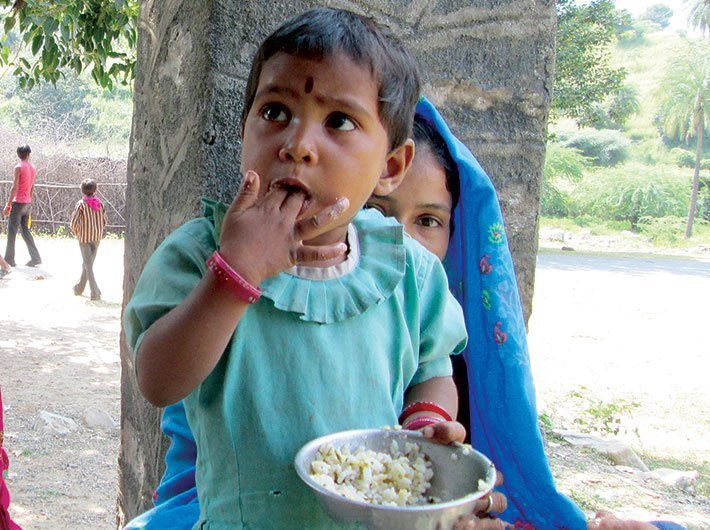Over two billion people suffer from micronutrient deficiencies, which can lead to diseases and development challenges
The triple burden of malnutrition – undernourishment, micronutrient deficiencies and over-nutrition – presents serious challenges and has the potential to worsen. Nearly 800 million people are hungry and, although significant progress has been made, this remains a challenge particularly in developing countries, said a World Economic Forum (WEF) report.
Over two billion people suffer from micronutrient deficiencies, which can lead to diseases and development challenges, such as stunting, added the report by WEF’s System Initiative on Shaping the Future of Food Security and Agriculture Prepared in collaboration with Deloitte Consulting LLP.
The report said that over 2 billion adults are overweight or obese. Poor nutrition and health habits can lead to non-communicable diseases (NCDs), which are now the leading cause of death in all regions except Africa. The economic burden and costs of NCDs radiate through households in the form of lower wages and savings. These strain health and welfare systems, impacting business and the economic growth of countries.
The aspiration for inclusive, sustainable, efficient, healthy and nutritious food systems will not be easy to achieve. A number of major global trends will pose challenges and opportunities for food systems in the future.
Demographic shifts are increasing and changing the demand for food. The world population is expected to reach 8.5 billion by 2030 and the size of the global middle class is projected to increase from 1.8 billion in 2009 to 4.9 billion by 2030. The growing size of mega cities and rate of urbanisation are further compounding the strain on food systems; by 2050, over two thirds of the global population are projected to live in cities.
Macroeconomic trends, such as the increasing inequality of wealth and sluggish economic growth present additional challenges to food systems. Within the agricultural sector, 800 million people live below the global poverty line, representing nearly four fifths of the world’s approximately 1 billion poor people, the report said.
The world relies on small agriculture producers: some 500 million smallholder farms worldwide produce over 80% of the food consumed in the developing world.
More broadly, the richest 1% of the global population currently have more wealth than the rest of the world combined. This economic inequality is increasing, translating into slower growth and compromising social cohesion.
Geopolitical dynamics are intensifying food insecurity and other challenges. The world is currently experiencing the highest levels of displacement on record, with 65.3 million forcibly displaced people worldwide. At the same time, emerging political movements, evidenced by recent events and elections in the United States and Europe, are demonstrating nationalist and isolationist tendencies that may impact trade agreements and international collaboration.
Existing innovations and emerging technologies present opportunities to tackle these challenges, but they will raise new questions and their impacts will not be evenly distributed. In complement to existing technologies, like mobile platforms, new Fourth Industrial Revolution technologies will profoundly change the way we live, work and relate to one another. Food systems will be dramatically influenced by this new era and the new tools it offers, including bio-innovation, gene editing, robotics, big data, artificial intelligence and machine learning.
The report added that these innovations will continue to create unprecedented amounts of data. Indeed, 90% of the world’s data has been created in the past two years and is expected to continue to grow exponentially. Such technologies depend on a world increasingly connected to the internet; while the number of internet users quadrupled from 2005 to 2015 to over 40% of the world’s population over 4 billion still don’t have access and the speed of connectivity is slowing down. Gender inequality compounds this challenge: women in rural areas are much less likely to access the internet than men in the same communities.
